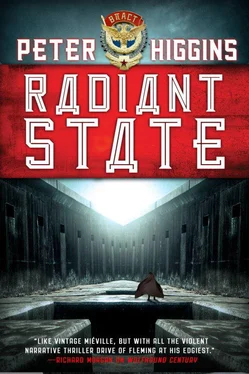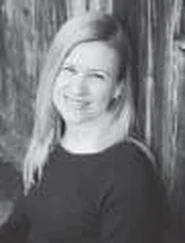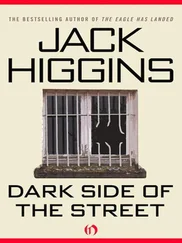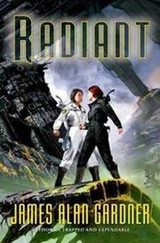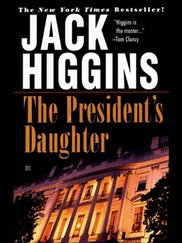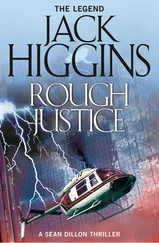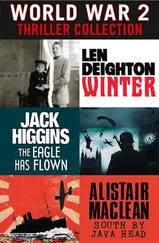Yeva Cornelius, night braids brushed out from her hair, leaves the house and her sister and Eligiya Kamilova still sleeping. The early fields are filled with air and light to overbrimming like a cup.
The path down to the lake passes between sea-green rye and scented hummocks of dried manure. In the bottom land the sorrel bloom is over, the crop coming on heavy and dark. Thick green heady vegetable blood. Yeva comes out onto the yellow grass of the lake margin. Old Benyamin Zoff is there already, on his hands and knees, crawling in his best grey suit along the edge of the water. He moves slowly, intently, with sacramental concentration, murmuring words that are quiet and musical but not a song. He will crawl like that all morning. There is a sunken city under the mirror-calm lake. An underwater world. In the village they keep water from the lake in their houses, in bottles and basins, and in the winter people go sliding face down on their bellies across the frozen surface, staring down, trying to see what is there.
The soul of the people is forever striving to behold the sunken city of Litvozh.
Eligiya Kamilova said that soon after they came to Yamelei. It was a quotation from a book. They long not for something that will be but for the return of something that was. They have not forgotten and they never will. The window frames of the village houses are carved with pictures of streets and towers under watery waves.
There are brown wooded islands in the lake and low hills on the horizon beyond the further shore. Yeva waves to Benyamin Zoff, who ignores her, and turns away from the water’s edge to climb up into the woods. There is a dead man standing among the trees. She passes quite close to him, but he is not watching her, and Yeva pays him no regard. Yeva isn’t bothered by the dead: they are preoccupied with their own thoughts and take no notice of her.
War, like storm and famine, has come around the shore of the lake and passed from time to time through Yamelei. The woods near the village are scarred by tank tracks, shallow shell holes and random trenches sinking under bramble, ivy and thorn. The trees are ripped and tattered by gunfire. Here, in these woods, colliding companies of the lost, rolling along on random surges of retreat and advance, attack and counter-attack, stumbled over one another, panicked and rattled bullets into each others’ bodies. Field guns set up among the oats and rye in the upper ground rained desultory shellfire on unofficered and bootless conscripts crawling for shelter under thorn bush and bramble mound. One time a whole truckful of people from somewhere else was driven in under the trees, shot and shovelled into three-foot ditches.
In the woods around the lake the killed have not died right. Uneasily half-sentient, not rotting well, they can be disturbed, upset, awakened. Their uncommitted bodies rise through the earth. They will not sink. They float. From time to time they get up from their beds and wander a while under the trees and lie down somewhere else. When the villagers come across a shallow-buried corpse in the woods they cut its head off, sever the tendons in its legs and drive a wooden peg through the ribcage to pin it firmly down. But they will never find them all.
You put new plaster on the walls but the old stains still seep through. That’s what they say in Yamelei.
Conscript Gunner K-1 Category Leonid Tarasenko, dead, stands with his forehead pressed against a tree trunk and traces the fissures in the bark with his hands. Pushes his fingers into the cracks and tries to pull pieces of the bark away, to see what is underneath. The pieces of bark won’t come free. They slip through the tips of fingers that are sticky from the gash in his throat. His second, silent mouth.
The dead man has probed the inside of the tear in his throat to feel what is in there. He has found soft things and hard things. The hard things are sometimes slippery smooth, and there are some pieces in there that are sharp. There is a hole deeper inside that he can slip fingers into, but the hole is deeper than his fingers are long.
The interiors of things interest him. The inspection of the tree absorbs his attention. He touches the tree with his tongue. Feels roughness, tastes taste.
It occurs to him that the tree is not part of him.
Where is the end of me? the dead man wonders, looking up into the top of the tree. Where is my limit? I am up there. I go past those branches and those branches and up into the bright place up there that looks wet but has no smell of wet. I go past those trees over there, and those trees, and those trees behind me, and that is not the end of it and that is not the end of me. But though I am over there and up there, I am here and not there. It is strange. Fingers and tongue don’t go up there to the top of the tree. They stop short.
The dead man apprehends that the tree doesn’t stand on the earth but continues down into it. The tree reaches into the ground and fastens there, but it isn’t the same with him. Unlike the tree, the dead man seems to be free to go to a different place.
That is interesting.
When he thinks about himself and what he knows and feels, the dead man finds pieces of knowing and pieces of feeling but the pieces are not connected. One of the pieces is angry and one of the pieces is sad because something important has been lost. One of the pieces feels sick, unfathomable horror and despair.
The pieces look at each other as if they have eyes, but they don’t have eyes, not really. Eyes are on the outside, in the sticky-soft raggedy face thing, here, where you can touch with hands. When fingers touch eyes, eyes cannot see trees any more and fingers come away sticky. If you press eyes with fingers you see flakes of light, strange muted flakes of different light, but you only see the light and not the other things, not the trees you could see before. The light you make with fingers in the eyes, that light is inside the head.
Yet inside the dead man mostly there is darkness. He can touch the darkness in his throat with fingers, but the darkness is always there and doesn’t come out. He cannot press that into light. That too is interesting. The dead have a lot to think about. But the piece in him that is sad and the piece in him that is angry want something. They are saying to go down the path.
What is path? says the piece of him that has all the questions. There isn’t any piece with an answer to that, but the feet are walking now, and that seems to be good. That seems to be the answer to the path question.
He notices that if the feet stopped walking then all the other things–all that is not him but other stuff, trees and not trees–stop moving also, and wait, and watch the dead man watching them, waiting.
I am the centre then.
I see that.
That I understand.
Yeva Cornelius passes the dead man by. As she moves away, he catches the sense of her crossing a splash of sunlight between trees, and his heart is surprised by a deep dim anguish, a recognition of kinship.
Leonid Tarasenko does what the dead don’t do. He starts to follow.
In Mirgorod the woman with the heavy canvas bag on her shoulder takes the tram all the way out to Cold Harbour Strand. She starts out along the spit and, when there is no one to see, leaves the path and disappears into the White Marsh. An hour and a half of hard walking brings her to the edge of a wide muddy expanse of marshland. She unpacks her bundle, spreads the oilskin out on the ground like a mat, sheltered from the breeze in the lee of a fallen tree trunk, and lays the Zhodarev on it. She crouches next to it to push the telescopic sight into the rails and set the graticule. Prises ten rounds from two stiff stripper clips into the toploader. Four hundred yards away across the mud another tree leans sideways in front of a mossy stone wall. She cuts a branch into three short lengths with a knife and binds them with twine to form a makeshift tripod barrel mount. Then she sets the graticule and settles herself into position, kneeling then lying alongside the fallen trunk. Remembers how it feels to be tucked away. Hidden from view. Safe.
Читать дальше
